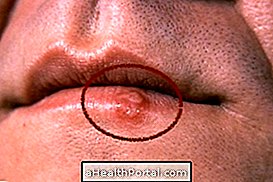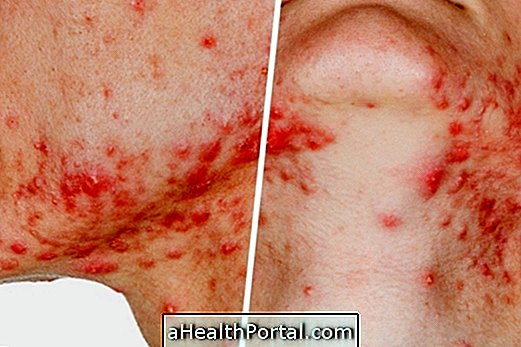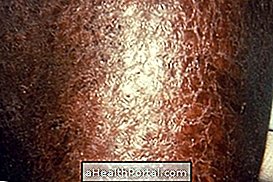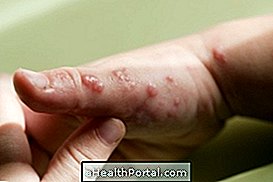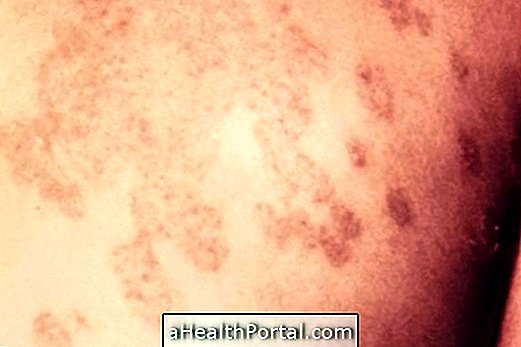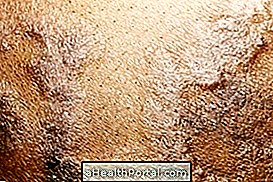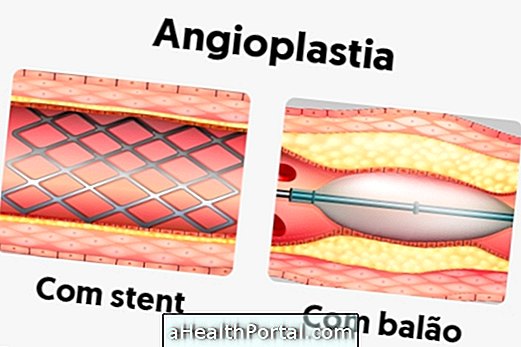Treatment for rosacea, a chronic skin disease that can reach the skin or eyes, can be done with the use of tablets, ointments or topical solutions, according to the dermatologist's guidelines. Rosacea is not contagious.
Remedies such as tetracycline, metronidazole, roacutan and glucocorticoids, although they may cause dryness of the skin, headache and muscle pain, are medicines commonly used for the treatment of rosacea, and therefore should only be used under medical supervision. In more severe cases of the disease, such as rhinophyma, which reaches the skin of the nose, may be indicated for surgery.
Treatment for ocular rosacea
Treatment for ocular rosacea may be done with the use of oral antibiotics and appropriate local hygiene measures. Eye lubricants can be used to relieve the dry eye symptom, but should not be used exclusively.
The diagnosis of ocular rosacea requires a careful evaluation with the ophthalmologist, since the vision may be compromised by inflammatory disorders already existing in the eyes, such as blepharitis, iritis, keratitis and recurrent collagen.
Treatment for rosacea with laser
The treatment for rosacea with laser is done in a dermatological office, and it destroys visible blood vessels on the face that cause the redness in the skin, as well as the treatment with pulsed light.
This treatment is contraindicated for people with diabetes and with a tendency to develop keloids on the skin. The side effects of laser treatment are mild, such as peeling, redness and swelling. These effects last only a few days and are not permanent.
Natural treatment for rosacea
In the natural treatment for rosacea, aloe vera gel and rose water have been used to alleviate and prevent the symptoms of rosacea in the skin, as well as cucumber can be used to decrease the sensitivity of the eyes for treatment of ocular rosacea. These natural treatments are recommended to prevent the symptoms of rosacea, with the benefit of not causing side effects like the other treatments.
Rosacea is an inflammatory process in the skin also known as "acne rosacea, " which arises naturally or with the action of some external factors such as: intense heat, consumption of hot foods and drinking alcoholic beverages.
The symptoms of rosacea may include: redness, heat and burning on the spot, oily skin, nodules in the nose (rhinophyma). In cases of ocular rosacea, the symptoms are similar to those of conjunctivitis, in which the eyes become watery and very red.
The dermatologist is the doctor appointed to properly diagnose and treat this disease.
